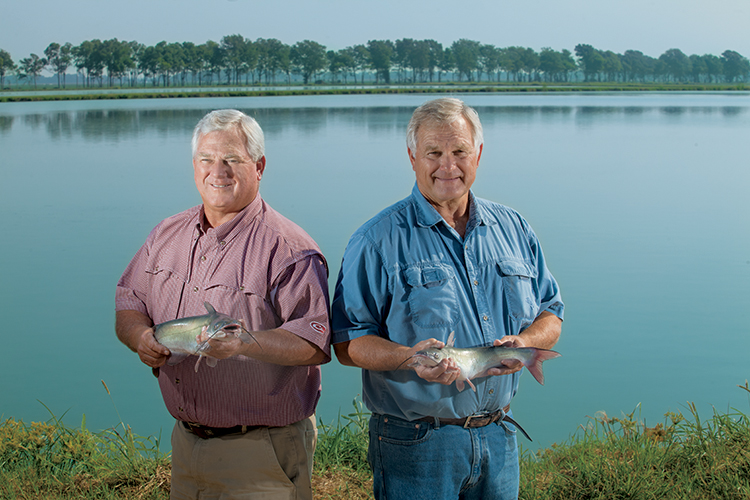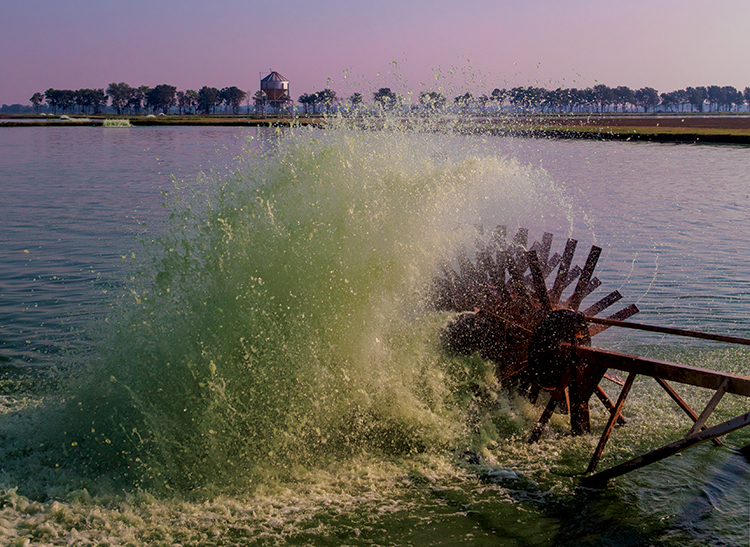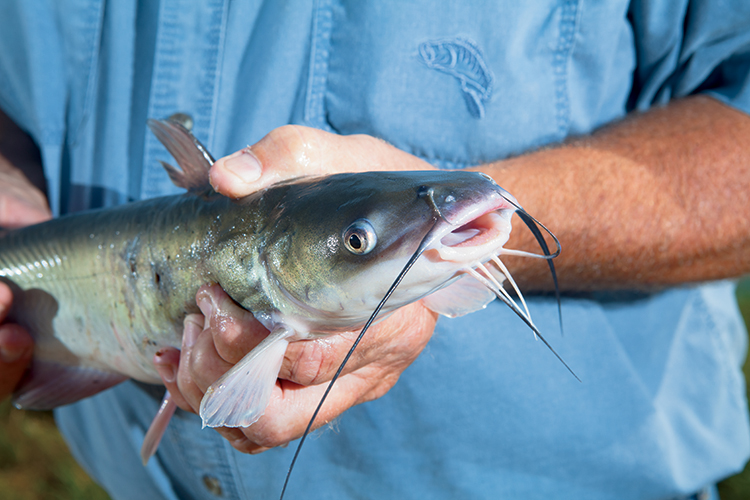Home > Mississippi > Mississippi Crops & Livestock > American Made Mississippi Catfish
American Made Mississippi Catfish
In partnership with: Mississippi Department of Agriculture and Commerce

Brothers Ben and Ed Pentecost built their first catfish ponds in Doddsville in 1980. After 33 years in the business, Ben Pentecost knows firsthand the opportunities and challenges Mississippi catfish farmers face. “Input cost has been a big challenge this last year,” he says. “We’ve had record high grain prices, and that has driven our feed cost to record highs. At the same time, we had a downcycle in the price of fish, so we were kind of catching it from both sides.” Those issues have eased a bit recently, but competition from overseas imports remains fierce. Furthermore, the volume of imported fish – currently about 90 percent of the seafood sold in the United States – exceeds the government’s ability to adequately inspect it. “No other country in the world has the food safety standards of the United States,” Pentecost says. “We can’t compete with imported fish on price, but we feel like we have a much safer product, a higher quality product.” Pentecost Brothers has grown over the years to include 57 ponds that cover 734 acres. Their production goal is an ambitious one: the brothers are striving to grow 6,000 pounds of catfish per acre.

Ben currently serves as president of Catfish Farmers of America, and Ed serves as vice-president of Catfish Farmers of Mississippi. Organizations such as these and The Catfish Institute help level the playing field. They advocate for better legislation and work to raise consumer awareness of the superiority of U.S. Farm-Raised Catfish compared to imported catfishlike species, which are often marketed as basa or swai and are raised in less than desirable conditions. “We’ve got a pristine product that’s very versatile and delicious. It’s not only good for the consumer, but it’s good for the environment,” says Roger Barlow, president of The Catfish Institute. “When we survey consumers, we consistently win when it comes to product quality and taste. When the consumer is given a choice, they overwhelmingly choose U.S. Farm-Raised Catfish over imported catfish.” However, until recently, unless consumers asked, they had no way of knowing whether they were getting imported or domestic catfish when ordering at a restaurant. Changes to Mississippi’s catfish marketing law took effect July 1, 2013, requiring restaurants to label their menu or post notices in a visible location that they are serving either U.S. Farm- Raised Catfish or imported catfish. The new legislation is “a win for the consumer and a win for producers,” Barlow says. “Mississippi’s country of origin labeling legislation for catfish is now the broadest and most comprehensive in the nation. Right now, we’re working to similarly enhance the other state laws that cover catfish in restaurants, where about 70 percent of our product is sold.”

Whether in Mississippi or elsewhere, consumers can be proactive by asking for U.S. Farm- Raised Catfish in restaurants and looking for the U.S. Farm-Raised Catfish seal in the grocery store. Those attending the annual New York Mississippi Picnic, held each June in New York City’s Central Park, can be sure the catfish they’re eating came straight from a Mississippi farm. The New York Society for the Preservation of Mississippi Heritage, which puts on the picnic, brings in the Mississippi Catfish Cooking Team to prepare catfish for the event. The team cooks 500 pounds of catfish and 140 pounds of hush puppies, all donated by Simmons Farm Raised Catfish of Yazoo City. “There are 1,200 catfish plate lunches served at this annual event,” says Alexis Brown, organizer of the New York Mississippi Picnic. “The Simmons Farm-Raised Catfish is a huge hit, and many people comment the catfish is what brings them back to the picnic.” To learn more about the catfish industry, visit UScatfish.com.



